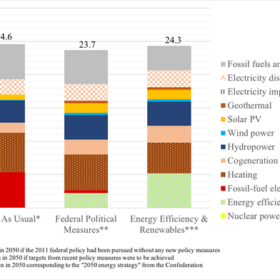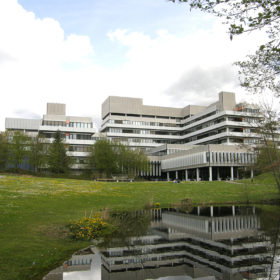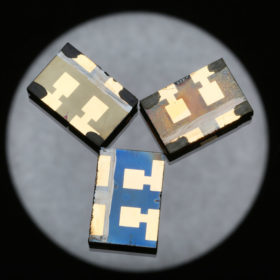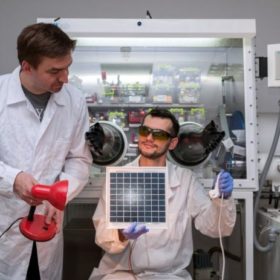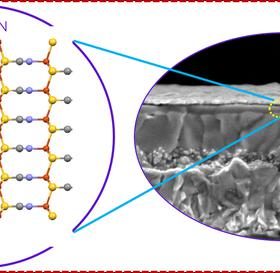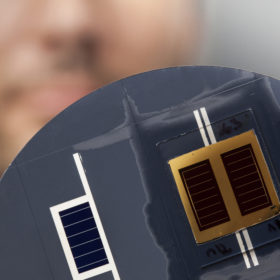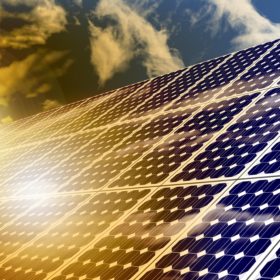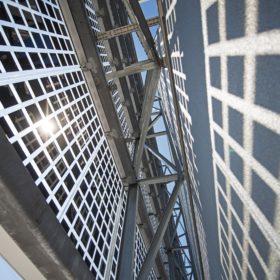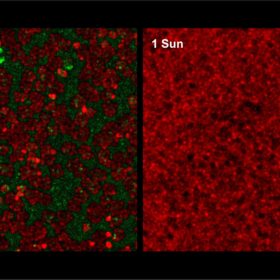Study: Swiss energy transition creates jobs and energy independence
A team of scientists at Lausanne have calculated the costs and job impact of the 2050 Energy Strategy, in force since January. The results show the additional investment called for by the strategy is offset by savings on imported fuel and electricity.
European researchers discover new effect of light on perovskites
Scientists led by Germany’s Max Planck Institute for Solid State Research have demonstrated for the first time that, as well as electrons, light also releases charged particles in a perovskite solar cell material. The researchers state that this groundbreaking discovery could make possible new solar power applications, such as batteries directly charged by light.
EU grants €5 million to perovskite research consortium
Belgian institute Imec will be the coordinator of a project involving many of Europe’s leading research organizations, which will focus on developing stable, scalable, low cost PV modules based on perovskite technology. The project, named ‘ESPResSo’ has received more than €5 million in funding from the European Union.
EPFL proposes standard measurements for perovskite aging
Scientists working on perovskite solar cells at Switzerland’s École Polytechnique Fédérale de Lausanne have proposed a method of standardization for the measurement of stability and degradation in perovskite solar cells, in order to create consensus and speed up commercialization of the technology.
Scientists grind out solvent free perovskite thin-film process
Researchers from the Institute of Physics of the Polish Academy of Sciences (PAS) and the renowned Ecole Polytechnique Federale de Lausanne (EPFL) have collaborated on a new technique for the creation of perovskite solar cell materials. The technique replaces traditional solvent based processes with steel ball mill grinding.
Swiss researchers improve stability of perovskite solar cells
EPFL scientists have marginally improved the operational stability of perovskite cells with the introduction of cuprous thiocyanate protected by a thin layer of reduced graphene oxide.
Swiss researchers team with NREL to break 35% cell efficiency
A collaborative project between the U.S. National Renewable Energy Laboratory, the Swiss Center for Electronics and Microtechnology (CSEM) and the École Polytechnique Fédérale de Lausanne (EPFL) has tested a range of multi junction cells in tandem configuration, and achieved efficiencies of up to 35.9%.
EPFL’s perovskite cell remains stable for over a year
A low-cost and ultra-stable perovskite solar cell, which was built by a team of scientists at Switzerland’s Ecole Polytechnique Fédérale de Lausanne (EPFL), has been operating at a constant efficiency of 11.2% for over a year with no performance loss.
Swiss researchers develop new process for back contact cell production
A team of researchers from École polytechnique fédérale de Lausanne (EPFL) and the Swiss center for Electronics and Microtechnology (CSEM) has developed a new process for fabricating cells with all electrical contacts at the rear. According to EPFL, the process has already achieved lab efficiencies in excess of 23%.
EPFL researchers investigate effect of light in perovskite cell formation
Scientists at Swiss research center École polytechnique fédérale de Lausanne have published research showing how the presence of light can affect perovskite film formation. The study could result in higher efficiencies and better reproducibility in perovskite cell production.
